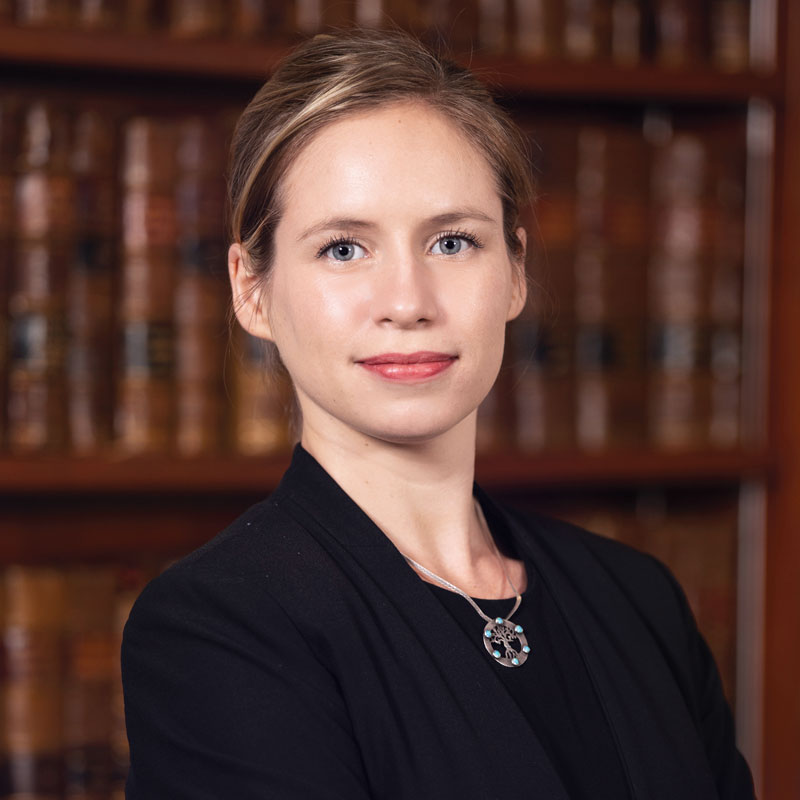GM-SA aka DG, M-S v DDPJ [2022] 3 HKLRD 767, [2022] HKCA 870 (Madeleine Booth)
Madeleine Booth, led by John Scott SC, represented the respondent in GM-SA aka DG, M-S v DDPJ [2022] 3 HKLRD 767, [2022] HKCA 870.
H and W were French nationals and long-term residents in Hong Kong. Shortly before their marriage in France, they entered into a pre-nuptial agreement in France (the PNA). According to H, under French law the PNA had inter alia the effects of maintaining under H’s separate ownership his interest in, and later proceeds of sale of, a business and of excluding the said assets from sharing or equalisation upon divorce. Prior to W filing her petition for divorce in Hong Kong, the parties had reached agreement over arrangements regarding their children and financial matters. A divorce decree nisiwas granted, and two consent orders were made reflecting the parties’ agreements respectively. In relation to the financial matters, the Ancillary Relief Consent Order divided the joint assets of the family roughly on a 50-50 basis. H alleged that he subsequently learnt that W had been having an adulterous affair with a third party (T), and that W intended to relocate to Switzerland with their children (the 2 Matters). H sought to set aside the Ancillary Relief Consent Order on the ground that it was induced by misrepresentation or material non-disclosure. H contended that had he known about the 2 Matters, he would not have agreed to the Ancillary Relief Consent Order, but would have relied on the PNA in the divorce proceedings, under which he suggested that W would be disentitled to assets of about USD 12 million she would otherwise receive under the Ancillary Relief Consent Order. H applied for leave to adduce expert evidence on French law concerning the PNA at the trial of his action to set aside the Ancillary Relief Consent Order. The Judge refused leave, holding inter aliathat the issue to be resolved at trial was whether W had misrepresented and/or failed to disclose the 2 Matters, which would be factual and required no expert evidence; that expert evidence on French law would not be needed at trial, instead it would only be needed for the determination of ancillary relief in the event that H succeeded at trial; and that the alleged non-disclosures of the 2 Matters during the course of ancillary relief negotiation were not material. H appealed against the Judge’s decision.
Held, allowing H’s appeal, granting leave to adduce the expert evidence at the trial, that:
- (1) The Judge erred in law or principle by incorrectly overlooking that, if the factual issues were found in H’s favour at the trial, further questions would arise as to whether H had suffered any loss or prejudice as a result of W’s misrepresentation and/or non-disclosure, and whether, but for the alleged misrepresentation/non-disclosure, the result of the ancillary relief proceedings would have been substantially different. The PNA was a matter which the court ought to have regard to when considering the issue of appropriate ancillary relief. The proposed expert evidence could assist the Court in understanding the true meaning and effect of the PNA, and thus was relevant for the proper determination of whether the Ancillary Relief Consent Order ought to be set aside (Granatino v Radmacher [2010] 3 WLR 1367, Gohil v Gohil (No 2) [2016] AC 849, Sharland v Sharland [2016] AC 871, Roocroft v Ball [2017] 1 WLR 1137 considered). (See paras.28, 32, 33(2), (4).)
- (2) Further, whether W ought to have disclosed her relationship or “would-be” relationship with T (if such relationship existed at the time of the two consent orders) was an issue to be determined at trial, instead of in an interlocutory application for leave to adduce expert evidence. (See para.33(3).)
[The above is excerpted from the headnote to the report in HKLRD.]


